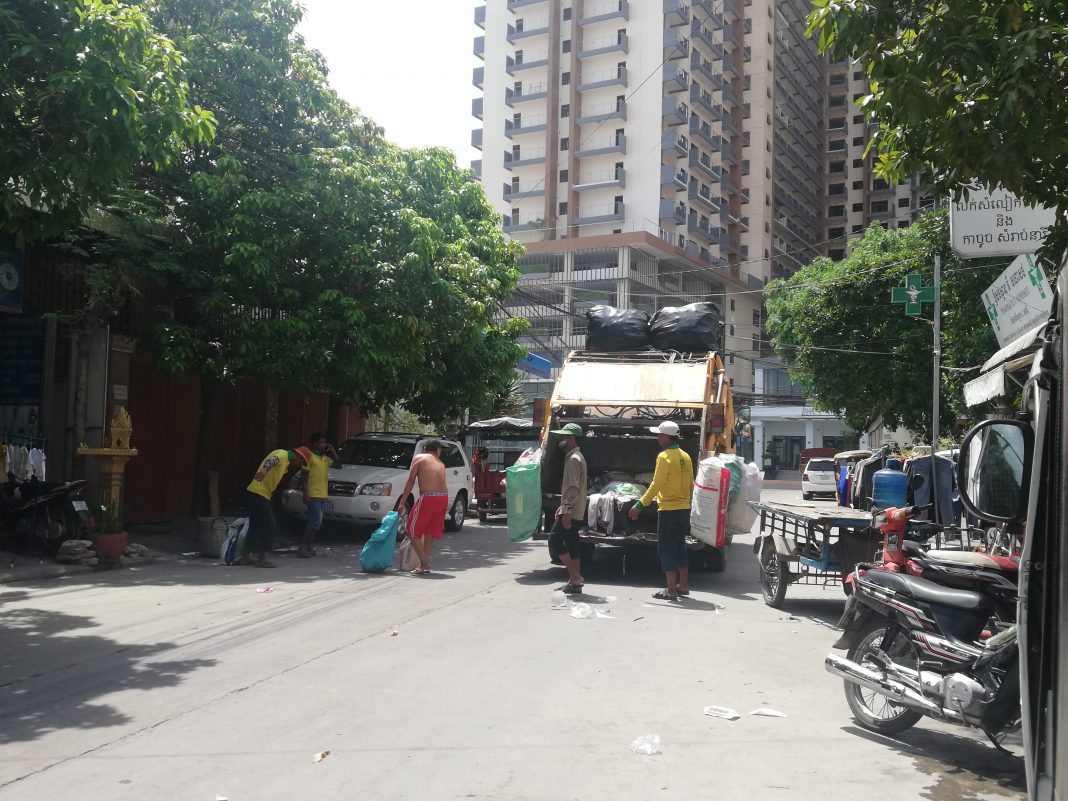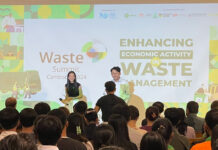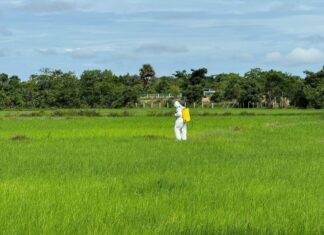Phnom Penh’s waste collector Cintri said this week that the amount of plastic trash being thrown out in the city was reaching “an alarming level,” overwhelming its staff, and called for residents to separate their trash and authorities to promote greater awareness.
The Environment Ministry agreed that the growing problem of plastic trash was one that needed to be urgently addressed — with 10 million plastic bags used in Phnom Penh every day — and urged Cambodians to try to better understand the issue.
Heap Sakoun, Cintri’s operations manager, said the company collected 3,000 tons of trash a day, all of which ended up in a single dumpsite near Cheung Ek.
Around 2,000 workers worked daily on 300 vehicles to collect the trash, and they faced a hazardous task, he said. Leaking trash bags full of mixed garbage were a common health hazard, he said.
“The important thing is to classify the garbage into different bins or bags,” Sakoun said. “If we could separate it things would be better — it could reduce the waste and make it easier to recycle.”
Sakoun said ministries and other parties should make regular public service announcements to increase awareness about separating trash and starting to reduce waste — particularly plastics.
“The amount of plastic waste is at an alarming level,” Sakoun said. “We need to reduce plastic bags and separate the trash, starting from our own selves first.”
Even without a municipal recycling system, separating different types of trash would make it easier for scavengers to collect items to sell to private recyclers, he said.
Neth Pheaktra, spokesman for the Environment Ministry, acknowledged that plastic waste was a huge global issue, and noted that the ministry had begun to take action in the country.
More than 10 million plastic bags were used daily in Phnom Penh, Pheasktra said, and 15 to 20 percent of all waste in Cambodia was plastics.
Worldwide, 9.3 billion tons of plastic waste had accumulated, and, at current rates, by 2050 there would be 34 billion tons — more than all fish in the ocean, he said.
Pheaktra noted that in 2016, the ministry had introduced a 400 riel ($0.10) charge for plastic bags at supermarkets, and had also begun a project to reuse plastics for making bricks.
The ministry would be working to educate people about waste management, including encouraging people to reduce plastic bags and use reusable bags instead, he said.
Many people still didn’t understand the problem of plastic waste and about separating different types of garbage to make it easy to recycle and decompose, he said.
“We need to start to reduce, innovate, recycle and reject,” Pheaktra said.
Maly Yean, a Kandal province resident who works in tourism, said she was aware of the importance of separating trash, but her family did not practice it. She knew plastic was bad for the environment, but it was difficult to stop using it, and she felt she had no other choice than to throw it into the garbage.
“I don’t separate it because I would need more bags to put [everything into],” Yean said. “Another thing is when I take the garbage to the garbage site, other people also never separate — it all mixes together.”
Srey Ry, who also works in the tourism industry and lives in Phnom Penh’s Dangkao district, said she did not know much about how to separate different types of garbage.
She said she was aware that there were separate bins for different types of trash at the mall, but it seemed that people still mixed them together.
She knew that wet and dry trash should be separated, she said, but admitted that she never did so at home.












